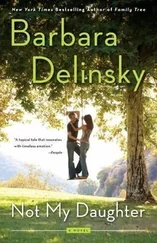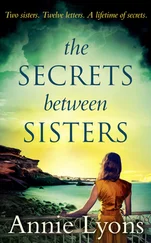Deborah might have been irked that he had taken it upon himself to talk to the police, but she knew her father was right; Hal was the best defense lawyer around. And Hal regularly played poker with Colby, so his assurance carried more weight. Of course, things had changed since yesterday.
“Calvin McKenna just died,” Deborah said, “and don’t ask how, because I’m waiting to learn myself. Do you think this alters the picture?”
There was a pause—to his credit, the lawyer at work— then a prudent, “That depends. Is there anything you were doing at the time of the crash to suggest you were at fault?”
There it was, a golden opportunity to set the record straight about who was driving. She knew it was wrong to lie. But the accident report was filled out, and the fact of a fatality made it even more important to protect Grace. Besides, Deborah had repeated the line often enough that it rolled off her tongue. “My car was just at the wrong place at the wrong time. If they weren’t going to charge me with operating to endanger before, will a death change that?”
“It depends on what the reconstruction team finds,” Hal replied, less comforting than she had hoped. “It also depends on the D.A.”
“What D.A.?” Deborah asked nervously.
“ Our D.A. A death might bring him into the picture.”
She had called for reassurance . “What does ‘might’ mean?”
“You’re starting to panic. Do not do that, sweetheart. I can get you out of whatever it is.”
“But what is it?” she asked, needing to know the worst.
“When a death is involved,” he said in a measured tone, “every side is examined. An accidental death can be termed vehicular homicide or even negligent homicide. It depends on what the state team finds.”
Deborah took a shaky breath. “They won’t find much,” she managed to say. Of course, she hadn’t imagined Calvin McKenna would die.
“Then you’ll be clear on the criminal side,” Hal added, “but a plaintiff doesn’t need much to file a civil suit. The standard of proof is looser. John tells me he got a call from the wife. He says she’s looking for someone to blame. And that was before her husband died.”
“We weren’t even going thirty in a forty-five-mile-per-hour zone.”
“You could have been going twenty, and if she hires a hotshot lawyer who convinces the jury that you should’ve been going fifteen in that storm, she could recover something. But hey,” Deborah heard a smile, “you’ll have a hotshot lawyer on your own side. I’m giving John a call. I want to know what tests were done to register the guy’s blood alcohol or the presence of drugs. John said you took the crash report home with you. Did you fill it out?”
“Last night.”
“I’d like to see it before you file. One wrong word could suggest culpability. Are you going to be home for a little while?”
“Actually, no.” She was grateful for a legitimate excuse to see him away from the house. “I have to take Dylan to school and, since the police are done examining my car, I want to drop it at the body shop. Can you meet me at Jill’s in, say, twenty minutes?”
Jill Barr’s bakery, Sugar-On-Main, was a cheery storefront in the center of town. After leaving her car at the garage for repair, Deborah approached it on foot, her medical bag slung over her shoulder. Keeping her eyes on the sidewalk with its faux brickwork, she tried not to think of Cal McKenna’s wife. She tried not to think of vehicular homicide. She tried not to think that people seeing her walking along Main Street might view her now in a different light.
The sweet scent of the bakery reached her seconds before she came to the small iron tables outside. Three of the four were taken. She nodded at several of the regulars as the familiar aroma took the edge off her fear.
The inside of the bakery was gold, orange, and red— walls, café tables, easy chairs, love seats. Deborah had a favorite grouping among the upholstered pieces, which was where she would have normally headed. But people often approached her there. She even got the occasional medical question— Does this look like poison ivy? It was the downside of having a local practice. Usually she didn’t mind, but today she didn’t want an audience.
Half a dozen customers waited in line; another dozen were seated around the shop. Head down lest one of them catch her eye, she continued on through the swinging kitchen door and went straight to Jill’s office. She had barely settled into the desk chair when her sister arrived with a tray. It held three coffees and three SoMa Stickies. “I take it I’m joining you?” Jill asked.
“Definitely.” Taking a mug, Deborah studied her. Pregnant? With her short blonde hair and freckles, and her cropped orange T-shirt and slim jeans, Jill looked like a child herself. “I can’t picture it,” Deborah said, oddly bewildered. “Are you feeling okay?”
“Perfect.”
“Are you excited?”
“Beyond my wildest dreams.”
Deborah reached for her hand. “You’ll be an incredible mom.”
“Then you’re not upset with me?”
“Of course I’m upset. It won’t be easy being up at night with a crying baby and no one to spell you. You’ll be exhausted, and it’s not like you can call in sick.”
Jill pulled her hand free. “Why not? Look out there.”
Deborah didn’t have to look. She was at the bakery often enough to know that there were three people at work behind the front counter, rotating deftly between coffee machines and pastry bins as customers ordered from tall chalkboards that listed additional specialties like SoMa Shots, Smoothies, and Shakes. Two bakers would be in the kitchen until mid-afternoon, producing fresh-from-the-oven batches of everything from muffins to croissants to sticky buns. And then there was Pete, who came to help Jill with lunch.
Deborah got the message.
Still her sister said, “I have a great staff that I’ve hand-picked and carefully trained. Who do you think was minding the shop when I was going back and forth to the doctor? I do have a life, Deborah. It’s not all work.”
“I didn’t say it was.”
“And I love what I do. I was back there kneading dough a little while ago. SoMa Stickies are my recipe. And SoMa Slaw? If you think I don’t get joy making Mom’s recipe every day, think again. Honestly, you sound like Dad some-times. He thinks it’s all drudgery and that I’m alone here. He doesn’t know Skye and Tomas, who get here at three in the morning to bake, or Alice, who takes over at seven. He doesn’t know I have Mia, Keeshan, and Pat. He doesn’t know about Donna and Pete.”
“He knows, Jill,” Deborah said. “People tell him.”
“And he can’t say the bakery’s a success? I did good at piano lessons when I was eight, so he decided I should be a concert pianist. I won a prize at the science fair when I was twelve, so he decided I should be a Nobel winner. Being me wasn’t good enough—he always expected something more.” She flattened a hand on her chest. “I want this baby. It’s going to make me happy. Shouldn’t that make Dad happy?”
They weren’t talking about childbearing, but about the larger issue of parental expectations. Jill might be thirty-four, but she was still Michael Barr’s child. “Tell him you’re pregnant,” Deborah urged, perhaps selfishly, but she hated having to keep this secret too.
“I will.”
“Now. Tell him now.”
By way of response, Jill asked, “Did you know Cal McKenna taught several AP sections?”
Deborah stared at her sister long enough to see that Jill wasn’t giving in. With a sigh, she took a drink of coffee. “Yes. I did know that.” So did Jill, since Grace had him for AP American History.
Читать дальше












